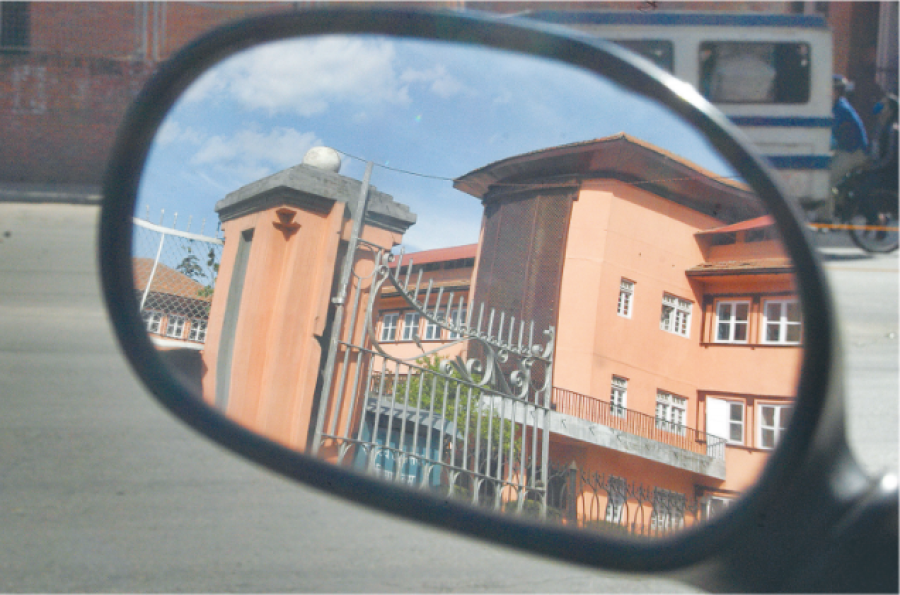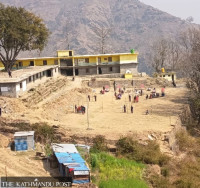National
Supreme Court puts brakes on government’s plan to extract aggregates for export
Extracting the Chure resources in the name of decreasing trade deficit would degrade the environment, critics say.
Tika R Pradhan
The Supreme Court has issued an interim order to the government not to implement its policy for the fiscal year 2021-22 to extract sand, pebbles and stones for export.
Citing the fundamental right of citizens to clean environment in Article 30 of the constitution that says every citizen shall have the right to live in a clean and healthy environment, the court has directed the government not to implement the policy.
“It is not appropriate to implement point number 199 [of the fiscal budget] as using ordinance on issues like natural resources will have a long-term impact because that would interfere with the rights and effectiveness of the legislature,” the Constitutional Bench said.
The Constitutional Bench has also cited Article 51(g) which talks about policies relating to protection, promotion and use of natural resources saying that while using the national resources of the country inter-generational coordination and environmental balance should be given due importance.
The Constitutional Bench comprising Chief Justice Cholendra Shumsher Rana and Justices Deepak Kumar Karki, Mira Khadka, Hari Krishna Karki and Bishwambhar Prasad Shrestha on Friday issued the order not to implement the decision until there is a final decision on the case.
While presenting the fiscal budget, Finance Minister Bishnu Poudel had: “Based on environmental impact assessment, mine-based stones, pebbles and sand can be exported to minimise trade deficit.”
The decision was met with criticism. Seven different writ petitions have been registered at the Supreme Court, where the petitioners have claimed that extracting the Chure resources in the name of decreasing trade deficit with India would degrade the environment.
Following the petition, the apex court had ordered the government to furnish reasons behind the government policy within a week.
Environmentalists have welcomed the Supreme Court’s decision.
“The court’s decision has created a breathing space for the people to expedite debate over the government’s move,” said Madhukar Upadhya, an environment expert. “At least this development will help ignite debate among the citizens.”
Upadhya, who also writes for the Post on environmental issues, said there are genuine demands of some people who say they need to extract aggregates to build their homes but the government has to decide the extraction sites.
“Extraction of sand and gravel has become a huge industry and is deeply intertwined with politics,” said Upadhya. “All the expenses for the elections come from such business in which politicians are involved.”
Government had banned the extraction of sand and stones in the Chure region since July 2014.
But Finance Minister Poudel came with the decision to export aggregates from the Chure region, drawing criticism from various sections of the society including all the political parties and environmentalists and conservationists.
“We have taken the decision to ban the export of sand and pebbles, citing that sensitivity of the rampant exploitation of the region would seriously affect the lives of more than half of the country’s population,” said Mahesh Acharya, former Finance Minister, who had decided to ban the export of the resources from Chure range. “We have decided to use the resources within the country only after conducting an Environment Impact Assessment for which committees of experts were formed.”
According to Acharya exploitation of the Chure range is not just a problem of Nepal rather it has transnational impact of desertification and loss of rechargeable water sources.
He said though the President Chure-Terai Madhesh Conservation Development Board had formed a master plan to conserve the fragile range the subsequent governments failed to implement it properly.




 27.41°C Kathmandu
27.41°C Kathmandu














